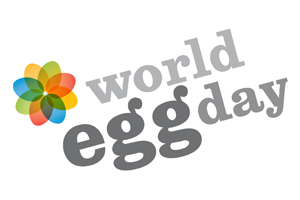World Egg Day helps to crack world hunger

World Egg Day on 10th October 2014 is a day to celebrate eggs and all they are doing to help eliminate hunger, food insecurity and malnutrition.
International Egg Foundation (IEF) is celebrating World Egg Day for the first time this year. The IEF is a new global charitable foundation which helps provide people living in developing countries with greater access to eggs as part of its goal to combat malnutrition and provide people who are underfed and undernourished with access to a sustainable diet.
The IEF is proud to be working alongside Heart for Africa, where it is supporting an orphanage in Swaziland, distributing hard cooked eggs to the children, a much needed source of protein. The project, named Project Canaan, will also fund and oversee the construction of an egg farm, to provide a sustainable source of food to the orphanage and the local community.
IEF is also working with the United Nations’ Food and Agriculture Organization sharing knowledge and technical expertise to help national egg organisations in Botswana, Lesotho, Malawi, Mozambique, Zambia and Zimbabwe increase the number of eggs available to people in their countries. Through the IEF FAO Egg Capacity Building Seminars these Southern African countries are working to increase egg farming in their nation, and therefore increase the number of eggs available to people in their country.
Julian Madeley, managing director of the International Egg Foundation, explained: “As well as being an excellent source of high quality protein, and containing all the essential vitamins and minerals required for a healthy diet, eggs have two key advantages when it comes to helping to improve diets in developing countries, they are one of the most accessible forms of high quality protein, and they are a truly sustainable option.
“Sustainability is critical, our aim is to help people by giving them the support and the knowledge to be able to continue helping themselves. As well as providing access to food, small scale egg production schemes have been proven to help people in developing countries achieve financial independence, increase their social standing, and encourage a sense of community. The IEF works from the ground roots up, to create a sustainable, self-sufficient food supply.”
Figures produced by the FAO show that 870 million people suffer from chronic hunger. Among children, it is estimated that 171 million under five years of age are chronically malnourished. The international egg industry is determined to use the power of eggs to help make a difference.












